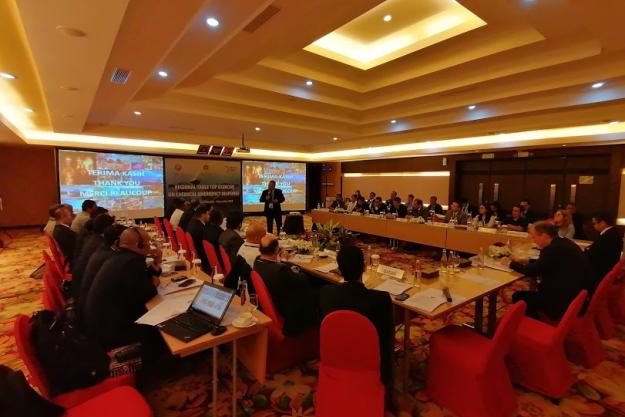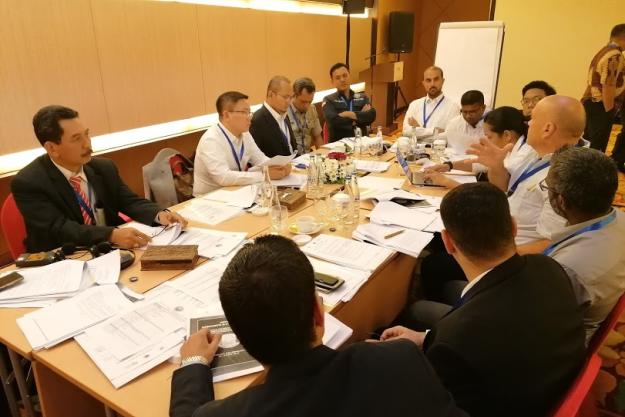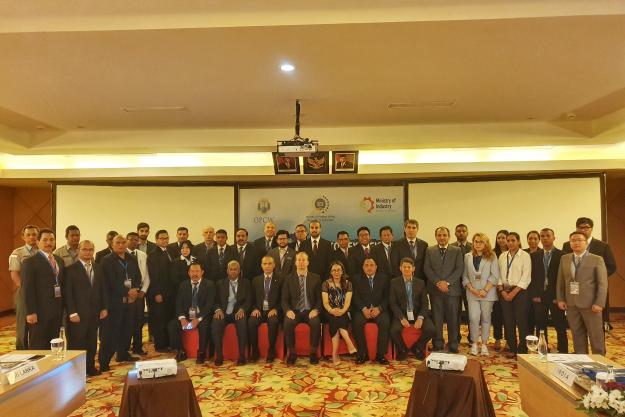
THE HAGUE, Netherlands — 5 November 2019 — Disaster management experts expanded their emergency response management skills during a Regional Table Top Exercise on Chemical Emergency Response for Asian States Parties (TTX-19), held in Nusa Dua, Bali, Indonesia from 29 October to 1 November 2019.
The exercise dealt with responding to major chemical incidents and putting into place effective response and assistance procedures. Areas addressed included operational frameworks, policy making, inter-agency cooperation, consequence management, and communication.
During the exercise, participants also had the opportunity to exchange information and foster networks to increase present and future cooperation.

The Director for International Security and Disarmament of the Ministry of Foreign Affairs of Indonesia, Ms Grata Endah Werdaningtyas, stated in her opening remarks: “We are glad that Indonesia, with the full-support of the Organisation for the Prohibition of Chemical Weapons, has contributed constructively to developing sound regional cooperation in mitigating the risk of chemical emergencies.”
Head of Assistance and Protection Branch of the OPCW, Mr Shawn DeCaluwe, underlined the ongoing relevance of the programme, stating: ”We hope that the exercise will contribute to the training of experts in the region and enhance their ability to effectively manage chemical incidents and create the sound conditions for the establishment of effective cooperation links between relevant authorities.”
The exercise was jointly organised by the OPCW and the Government of Indonesia and was attended by representatives from India, Indonesia, Iran, Jordan, Kazakhstan, Lebanon, Malaysia, Maldives, Oman, Pakistan, Qatar, Sri Lanka, Sudan, Saudi Arabia, Tajikistan, and Vietnam.

Background
The Table Top Exercise Programme is part of OPCW activities to strengthen international and regional cooperation regarding protection programmes and response to chemical emergencies. It is part of the implementation of Article X of the Chemical Weapons Convention.
As the implementing body for the Chemical Weapons Convention, the OPCW, with its 193 Member States, oversees the global endeavour to permanently eliminate chemical weapons. Since the Convention’s entry into force in 1997, it is the most successful disarmament treaty eliminating an entire class of weapons of mass destruction.
Over 97% of all chemical weapon stockpiles declared by possessor States have been destroyed under OPCW verification. For its extensive efforts in eliminating chemical weapons, the OPCW received the 2013 Nobel Peace Prize.
